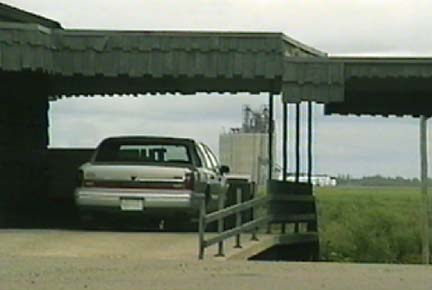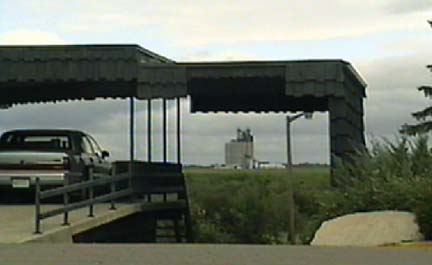Perspective
FTLComm - Tisdale
July 31, 1999
Initial Wheat Board Prices were announced yesterday and they were all below last
year's below production cost prices. This weekend prairie farms in the Southern
part of the province will be disrupting traffic in an effort to draw attention to
the drastic drop in income that is both a result of the low grain prices but also
of this year's weather in the South East which prevented many fields from even being
planted.
Yesterday I talked to my friend, farmer Dave about

Dave is not the exception, farmers of this era are experience and cost conscious but there is a limit to frugality. They have already decided to deal with the low income crisis and have in place contingency plans to limp along until things get better. Most realise that this will mean that many of them will go out of business. There is no way of dodging the bullet, the economics of farming are such that since the early part of this century this cycle has continued. Year after year, decade after decade farmers have lost their farms and the survival of the fittest or luckiest has prevailed. Essential Saskatchewan agriculture has been governed by the laws of the jungle.
The few exceptions to this were only temporary. The nineteen thirties seen the development of the Canadian Wheat Board which did a reasonable job of cushioning changes in market prices. The development of the Wheat Pools was another move that reduced cost to farmers as they had control of their own marketing company. The cost of transporting grain was assisted somewhat with the Crow agreement which saw a modest subsidy of freight-rates to Western farmers. All of these measures are now either gone, or in the case of the Wheat Board in jeopardy. Farmers, now much larger in financial terms are correspondingly less in political clout because the increase in farm size in Canada and the United States has lead to high efficiency and a fraction of those who once made their living from agriculture.
The federal government has no interest in Prairie grain there are simply to few voters here to develop any sort of concern and provincial politicians in power do not expect any support or need any support from rural voters as their seats are urban and without an effective opposition the present government will be

re-elected. This simply means that the chance of any governmental support for this sector of the economy is not a factor. This comes as now surprise to people like my friend Dave because they have seen a life time of similar behaviour from government. They know that there will be talk and the politicians will talk eloquently about their support but when it comes right down to it they will provide only programmes that will further confound the farm economy and in some recent cases actually renege on promises.
The only government that put is money and efforts into the support of Western Agriculture was that of John Diefenbaker which set up two price for wheat, actively marketed grain abroad and provided price support that was meaningful and useful. However, it should be noted that this was the only such government in the country's history to do so and Diefenbaker was effectively ousted from government by politicians from his own party because of his pro-western stance.
The message is clear, farmers are on their own. Here are some suggestions:
- Cooperate with one another, form farming alliances to reduce the cost of production and consolidate equipment costs so that the farming operation can become even more cost effective and profits can be made even with very low commodity prices.
- With hold product, in essence assume such a militant stance that do not plant or market product, actually go on strike. This will not work, because most farmers can not financially afford such action but when you consider the dire situation since you are already losing so much, it may be you really have nothing to lose.
- Stop being such nice guys, the French farmers have proven that militancy and a little spilled milk or grain can go a long way in drawing attention to the importance of agriculture and in Europe farming is respected largely because of its power at the ballot box but also because of tighter political party situations which make every vote count.